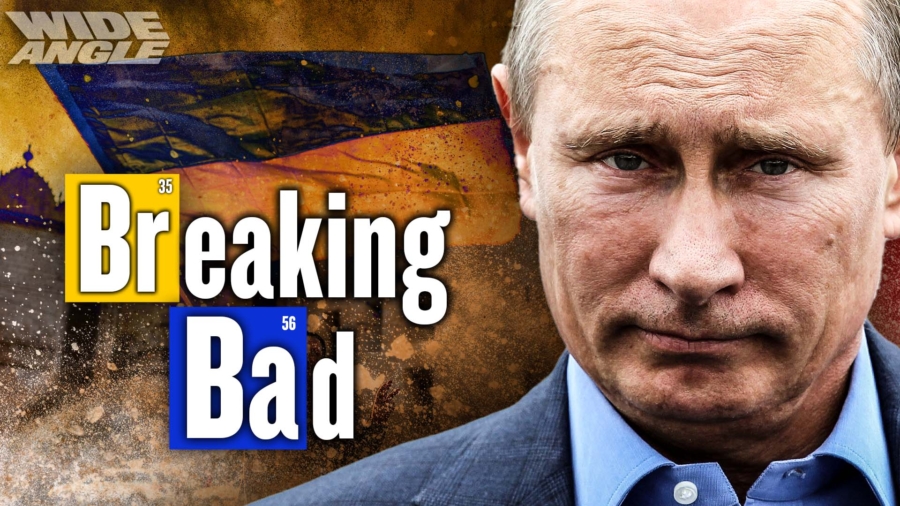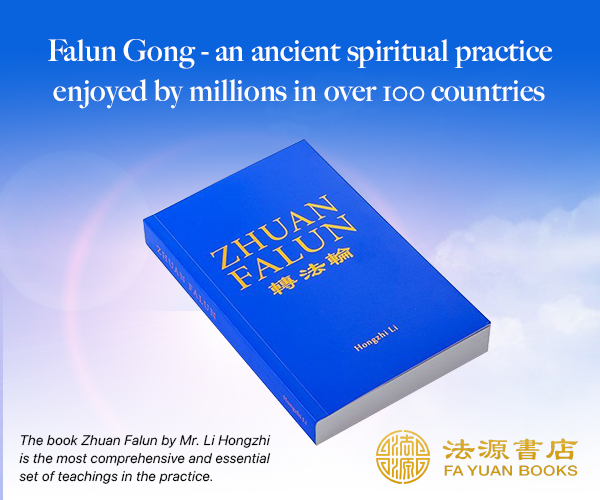How Gayle King put a national spotlight on the killing of Trayvon Martin
A woman stops to photograph a portrait of Trayvon Martin, the 17-year-old who was killed by George Zimmerman in Florida in 2012, made by Venice artist Jules Muck on Abbot Kinney Boulevard, in Venice.
By Stephen Battaglio Staff Writer
Feb. 26, 2022 7 A.M. PT
[Los Angeles Times]
“CBS Mornings” co-host Gayle King recalls the editorial story meeting at her network in February 2012 when she first brought up the name Trayvon Martin. Days had passed since the unarmed 17-year-old Black teenager from Sanford, Fla. was shot and killed by George Zimmerman, a neighborhood watch coordinator. When King raised it, she heard producers say it was a local story. But she knew it was something more.
[N.S.: Martin wasn’t unarmed; the ground he was beating George Zimmerman’s head into was his weapon, not to mention that was pounding away on Zimmerman’s head, and was going to leave him either with permanent brain damage or dead. Besides which, “unarmed” blacks murder people all the time.]
“I said, ‘I’m telling you this is not a local story,’” King recalled in an interview Friday. “It was unheard of to me that this was just a kid walking from the store with his Skittles and his Arizona iced tea, minding his own business on the phone talking to his girlfriend.”
[If Martin had just been “minding his own business” then he would have kept his hands off of George Zimmerman, and instead of doubling back to sucker punch Zimmerman, he would have gone straight back to the home of Brandy Green, his father’s girlfriend.]
King kept pushing and soon Mark Strassmann, the Atlanta-based correspondent for CBS News, did the first network TV interview with Martin’s father and his attorney Ben Crump, who has since become a prominent figure in cases involving the wrongful police killings of Black people.
[Benjamin Crump is a hoax lawyer, the legal equivalent of Al Sharpton, and has also put his name on a black supremacist hoax book. Crump organized a conspiracy to suborn perjury, and to violate George Zimmerman’s civil rights, when he got Rachel Jeantel to impersonate Trayvon Martin’s girlfriend, Brittany Diamond Eugene, and to lie on the stand, saying that she had been on the phone with Martin when he attempted to murder Zimmerman. No honest journalist would ever cite Crump in the positive way Stephen Battaglio did.]
Martin’s death went unpunished as Zimmerman was acquitted because of Florida’s “stand your ground law” that allows citizens to use deadly force if they feel threatened or endangered. But the national coverage of the story that started on CBS helped energize the “Black Live [sic] Matter” movement and the national conversation about equal justice in the Black community.
[The foregoing paragraph is defamatory, because it says that Zimmerman was guilty of murder. Stephen Battagglio lied about George Zimmerman’s acquittal. Florida’s “stand your ground law” never played any role in the case. However, because the Democrat Party sought to get that law—which has helped blacks more than any other group—repealed, Democrats (including the msm) hammered on that false story line, just as soon as Tracy Martin, mistakenly thinking George Zimmerman was White, got a Democrat civil rights attorney he was related to by marriage and White PR whore Ryan Julison working on the hoax. That the black lives matter Nazi movement seized on the hoax should not be surprising. It’s a genocidal movement, but Battagglio writes as if they were heroes. There was no “national conversation about equal justice”; there was a national monologue asserting that blacks have carte blanche to violate non-blacks.]
The story resonated strongly through the sports world, with NBA players wearing Martin’s now-iconic hoodie and leading to former NFL quarterback Colin Kaepernick’s on-field protests that effectively ended his football career. In the White House, then-president Barack Obama said Martin “could have been me 35 years ago.”
[Again, had Stephen Battaglio any decency, he would emphasize that Colin Kaepernick and Barack Obama are genocidal black supremacists.]
King revisits the incident and its lasting impact on the country in the hourlong special “Trayvon Martin: 10 Years Later,” which is available on CBS News Streaming starting Saturday night, the anniversary of the teenager’s death. It will also have cable TV airings Saturday at 7 p.m. Pacific on the Smithsonian Channel and Monday at 5 p.m on BET.
“Trayvon Martin: 10 Years Later” is the network news division’s first streaming program presented under the “CBS Reports” banner, a name associated with its renowned documentary series hosted by Edward R. Murrow.
The program comes out of the division’s Race and Culture Unit, led by veteran executive producer Alvin Patrick. CBS News created the unit two months after the May 2020 police killing of George Floyd, which spurred social justice protests in cities across the country.
[Police didn’t “kill” George Floyd, and cities across the country did not see “social justice protests,” they saw racist riots, looting, and arson which caused billions of dollars in damage and lost property.]
King discussed the program — and her recent decision to sign a new deal with CBS to continue morning duties along side Tony Dokoupil and Nate Burleson — during a break while filming a story in Los Angeles.
It sounds like you wouldn’t take no for an answer when you wanted to get Trayvon’s story on the network.
I’m very proud of that because I’m sitting there with a table full of people going over the story rundown who did not see it as a national story. But I really did see “something different has happened here” and I think because it’s so relatable to anybody that has a son, and certainly anybody that has a Black son, that your child could be in harm’s way just doing normal things. That was just unheard of to me and quite frankly very scary.
As the mother of a Black son, it had to be especially frightening for you.
It’s no secret that all Black families — I don’t care what your economic status is — always have the conversation with their young boys about what happens if you ever have an encounter with the police.
[She’s a liar to the bone. She’s promoting the myth of “the talk.” black parents have no such conversation with their boys. That’s just another lie. If anything, they exhort their sons to disrespect all White authority figures.]
Now George Zimmerman was not a police officer. He was a wannabe police officer. He called himself a neighborhood watch person. But he certainly thought he was empowered and emboldened to take the law into his own hands. From Trayvon’s point of view, he didn’t know who this guy was. He doesn’t know why this guy is following him.
[Trayvon Martin was a burglar who was walking in an area behind people’s homes where he did not belong, casing them for break-ins. He was also high on marijuana, and carrying ingredients back to his father’s girlfriend’s home, to mix a drug drink.]
Protesters hold signs during a march and rally for slain Florida teenager Trayvon Martin on March 31, 2012, in Sanford, Fla.
It took awhile for the story to seep into the public consciousness outside of the Black community, as opposed to George Floyd, where the reaction across the country was immediate.
It took George Floyd — watching the life seep out of him in front of your own eyes — to really wake people up in a different kind of way. You just saw the callousness and the inhumanity of that. People weren’t familiar with this kind of story.
[More lies. Officer Derek Chauvin used the method he had been trained to use, and which Minneapolis police officers had lawfully used many times. There was no “callousness and inhumanity” to see in that video. If “the life seeped out of” George Floyd, it was because of the fatal overdose the counterfeiter and armed robber had taken of fentanyl, not to mention THC and methamphetamine, with effects that were compounded by Floyd struggling with police.]
It’s because we had video and could see what happened.
Unfortunately, I think that’s true. And listen, if there wasn’t video in the Ahmaud Arbery case, those guys wouldn’t even have been arrested. [But they shouldn’t have been arrested, BECAUSE of the video, which showed Arbery trying to murder Travis McMichael.] If there wasn’t video in [sic] George Floyd case, they would have told a different story. The video was crucial. [No; the black nazis and their White “allies” ignored the facts of the George Floyd video.] There was no video for Trayvon Martin. They had audio of the gunshots and the screams. People tried to say that that was George Zimmerman screaming for help. Trayvon’s mother Sybrina Fulton was very clear about who those screams were. She said “I know my son’s voice.”
[Note that Gayle King ignores the fact that Tracy Martin initially denied that that was Trayvon screaming. Why would someone who was on top of a man he was beating to death scream for help?]
In the past this might have been just been a segment. Is one of the advantages of having a streaming channel that you’re able to devote an entire hour to this?
I say hooray for us, for giving it the space and attention it deserves. People needed to be reminded because we’ve made some progress because there have been some convictions, but we’ve got a long way to go.
[“But we’ve got a long way to go”: Typical black supremacist talk from central casting.]
Do you think the public’s attitude has evolved enough so that if the Trayvon Martin incident happened today George Zimmerman would have been convicted?
I’d like to think so.
[English translation: Do you think Whites have been intimidated enough that if Trayvon Martin tried to murder a man who was black, mestizo, and White, but who was defined by the new york times as a “White Hispanic,” George Zimmerman would have been convicted?]
You recently signed a new deal at CBS. There was a lot of chatter about you talking to CNN. How close were you to going there?
What I think is important is that I’m staying at CBS. I’m not going to engage in the chatter. I will just say I’m very happy that we reached an agreement. I’m very happy to stay where I’ve been for 10 years. I love the team that we have and I love what we’re doing.
[But she talked to cnn, as a negotiating tactic! She was the chatter! She acts as if that were third parties spreading baseless rumors.]
How do you like being a grandmother?
I love it. If I didn’t think you’d be bored to tears I’d send 10 pictures right now.
Has your grandson, Luca, watched you on TV?
Oh yes. It’s all I can do not to lead the show with how he did with tummy time.
Stephen Battaglio writes about television and the media business for the Los Angeles Times out of New York. His coverage of the television industry has appeared in TV Guide, the New York Daily News, the New York Times, Fortune, the Hollywood Reporter, Inside.com and Adweek. He is also the author of three books about television, including a biography of pioneer talk show host and producer David Susskind.



























